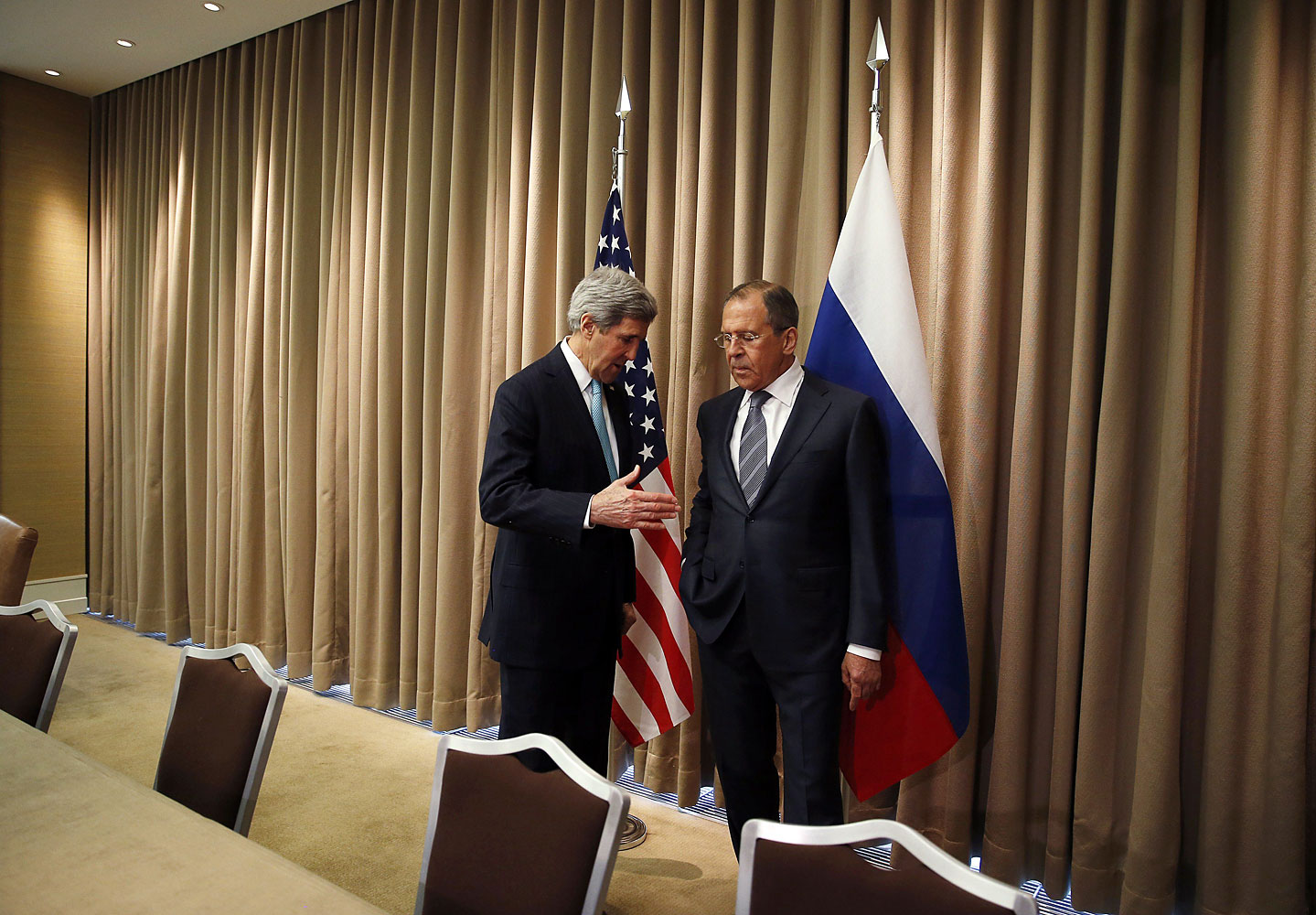
The ink wasn’t yet dry on Thursday’s diplomatic deal to calm the crisis in eastern Ukraine before the Obama administration began casting doubt on it. Secretary of State John Kerry, who helped broker the deal in Geneva with Russia, Ukraine, and the European Union, warned that it was only “words on paper.” President Obama told reporters he didn’t think “we can count on” the deal sticking.
A day later, the agreement was already looking wobbly. Pro-Russian activists have refused to leave government buildings in eastern cities like Donetsk. Ukrainian forces paused what they call their “anti-terrorist” operations in the east, but didn’t withdraw. And Washington and Moscow promptly began bickering over the agreement’s meaning.
“We’re looking at all of this skeptically,” a senior administration official tells TIME.
All in all, the agreement is looking about as fragile as an Easter egg. Here are three reasons why.
1. Moscow and Washington disagree about the agreement
While most reporting in the U.S. has focused on the idea that the Geneva pact would require pro-Russian militants to leave government buildings in Ukraine’s east, Russian Foreign Minister Sergei Lavrov made clear on Thursday that he expects something more: for the pro-Europe demonstrators in Kiev’s central square, who initiated Ukraine’s revolution this winter, to vacate city hall and other municipal buildings they have occupied. “It is impossible to solve the problem of illegally seized buildings in one region of Ukraine when the illegally seized buildings are not freed in another,” Lavrov said.
The U.S. doesn’t see things that way. “There’s no parallel whatsoever between the armed and illegal seizures of government buildings, streets, and public spaces in eastern Ukraine, which are clearly covered by the accord from yesterday, and the legal and peaceful protests,” State Department spokeswoman Jen Psaki said on Friday.
The dispute hardly augurs well for the deal’s endurance.
2. The people who matter are ignoring it
A key passage of the Geneva deal states that
All illegal armed groups must be disarmed; all illegally seized buildings must be returned to legitimate owners; all illegally occupied streets, squares and other public places in Ukrainian cities and towns must be vacated.
On the pro-Russian side, agitators occupying government buildings in Donestk and other eastern cities and towns seem uninterested in those words. “Lavrov did not sign anything for us,” Denis Pushilin, head of the self-declared Donetsk People’s Republic, told reporters. And why would he? Moscow has denied coordinating with the likes of Pushilin, even if almost no one believes it. The question is whether Pushilin and his ilk are truly independent—or just obeying Moscow’s orders to ignore the deal.
On the pro-European side, the demonstrators who have been encamped in central Kiev for months aren’t about to abandon the tent-city infrastructure where dozens of them died. It’s not clear whether Moscow ever considered that a realistic outcome of the Geneva deal or is simply drawing the equivalence to defend the antics of its supporters in the east. But almost nothing Moscow does can disband Kiev’s Maidan.
3. Putin is saying ominous things
Though it was overshadowed by Thursday’s deal, the Russian president’s public remarks at a televised question-and-answer session in Moscow yesterday may have been more significant. As he fielded softball questions, a cocky-sounding Putin pointedly referred to eastern Ukraine as Novorossiya—which translates as “New Russia”—and noted that it once didn’t belong to Ukraine at all:
I would like to remind you that what was called Novorossiya (New Russia) back in the tsarist days – Kharkov, Lugansk, Donetsk, Kherson, Nikolayev and Odessa – were not part of Ukraine back then. These territories were given to Ukraine in the 1920s by the Soviet government. Why? Who knows.
Putin loves to unpack the historical roots of modern events. “Who knows” suggests he believes there is no good answer to his question, and that Russia’s surrender of eastern Ukraine was illegitimate.
There were some positive signs. Putin said ethnic Russians in Ukraine “should be full citizens in their country,” which implies a future outside of Russian borders. He even drew a distinction between eastern Ukraine and Crimea, to which he helped himself: “We must admit that the ethnic composition of Crimea differs from that of southeastern Ukraine,” Putin said. While Crimea is overwhelmingly Russian, Putin conceded that eastern Ukraine is, by his estimate, only about 50 percent so.
That said, Putin pointedly reminded his audience that the Russian Duma has authorized him to use force in Ukraine. “I very much hope that I will not have to exercise this right,” Putin said. Meanwhile, an estimated 40,000 Russian troops remain on Ukraine’s eastern border. Thursday’s agreement said nothing about their withdrawal.
More Must-Reads from TIME
- Cybersecurity Experts Are Sounding the Alarm on DOGE
- Meet the 2025 Women of the Year
- The Harsh Truth About Disability Inclusion
- Why Do More Young Adults Have Cancer?
- Colman Domingo Leads With Radical Love
- How to Get Better at Doing Things Alone
- Michelle Zauner Stares Down the Darkness
Contact us at letters@time.com